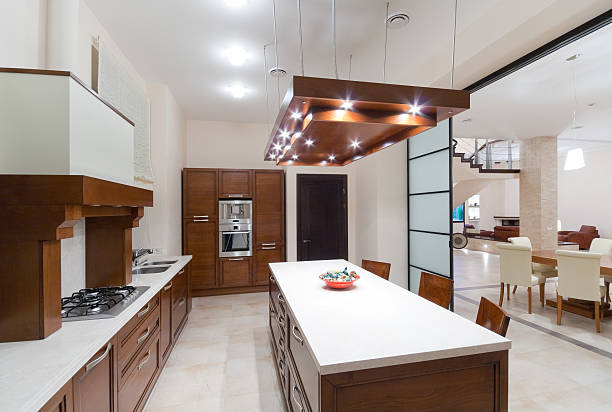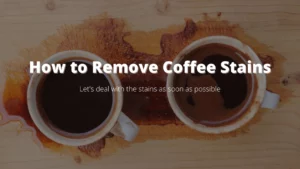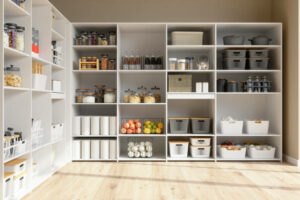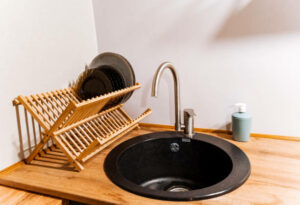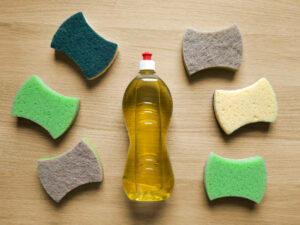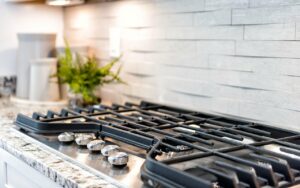Many homeowners face the problem of grease buildup on the walls of their kitchen appliances. Not only is it an eyesore, but it also poses a potential fire risk to health and safety in the kitchen. This article discusses some effective ways to remove grease from kitchen walls and make them look new.
1. Tackle this problem
While cooking, grease can accumulate on the kitchen walls. Over time, the steam, smoke and splatter from cooking deposits microscopic grease particles on the walls, leaving a sticky residue on the walls.
Why cleaning kitchen walls is so important
There are a lot of reasons why it is essential to keep the walls of your kitchen clean. The overall hygiene of the kitchen is improved, and the likelihood of harmful bacteria growing is decreased as a result. It is also important to note that the aesthetics of the kitchen have been maintained, which makes it more inviting and enjoyable to use.
2. Typical obstacles
Removing stubborn grease stains from kitchen walls is not an easy task. The situation can be worse if you use the wrong cleaning method and damage the wallpaper or paint.
3. Prepare to clean
Make sure you have all cleaning supplies and equipment ready before you start. First, gather the following: dish soap, baking soda, white vinegar, bucket, microfiber cloth or sponge, and safety gloves.
Cleaning instructions in a nutshell
- Points to consider: Make sure the area around the kitchen walls is clean before you start cleaning.
- Gather cleaning supplies: Mix dish soap or white vinegar with warm water.
- Before covering an entire wall with a solution, test it on a hidden spot to make sure it won’t damage the wallpaper or paint.
- Make the repair: After soaking a sponge or cloth in the cleaning solution, gently scrub the wall in circular motions.
- Rinse: Wash off soap with clean water.
- Dry thoroughly: To prevent water stains, wipe the walls with a dry cloth.
4. Natural household cleaner
If you’re looking for a greener option, you can easily remove the grease with a combination of baking soda and water or vinegar and water.
Maintenance tips
Wipe your kitchen walls with a damp cloth after each use to remove excess grease and prevent future buildup. Another option to reduce grease build-up is to install a splash guard or extractor hood.
Expert help
If there is a lot of grease buildup or you are unsure how to clean a specific type of wall, it is best to hire a professional cleaning service to protect your walls from damage.
Safety precautions
To avoid inhaling cleaning fumes, make sure there is adequate ventilation when cleaning the kitchen walls. Always wear protective gloves to prevent skin irritation from chemicals.
Other methods
Some homeowners also swear by more non-traditional cleaning methods when it comes to removing grease, such as rubbing alcohol or dryer sheets.
5. Remove stubborn discoloration
To remove stubborn oil stains, mix baking soda with water to form a paste. Let the paste sit for a few minutes before scrubbing the stained area.
Benefits of spotless kitchen walls
Cleaning your kitchen walls not only makes your kitchen look better, but also allows for healthier cooking and increases the cleanliness of your entire home.
FAQs
1. How often should I scrub my kitchen walls?
For best results, clean your kitchen walls once a week to prevent grease buildup.
2. Can I use bleach on the kitchen walls?
Although bleach can kill bacteria, it can damage wallpaper or paint. Use gentler cleaning products if possible.
3. What if my walls have structure?
Use a microfiber cloth or soft-bristled brush to protect textured walls.
4. Should I repaint my kitchen walls after cleaning?
A good scrub is usually sufficient. In extreme cases where the paint is damaged or discolored, repainting may be necessary.
5. Is one cleaning solution suitable for every type of kitchen wall?
To ensure the cleaning solution is safe for wall materials, test it on a hidden area first.
Conclusion
These straightforward cleaning suggestions will help you get rid of the stubborn grease buildup that has accumulated on the walls of your kitchen and make it a spotless place to cook. Carry on with the routine maintenance in order to prevent further accumulation of grease.
